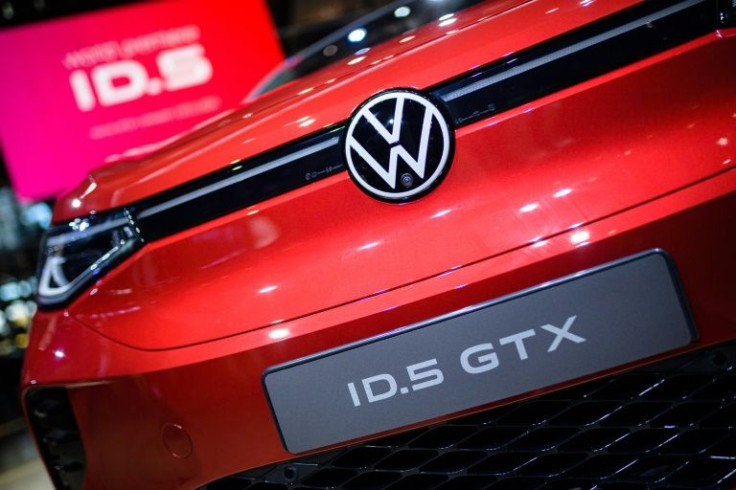Electric Cars Are Set To Hit The Road Far More Speedily Than Predicted

For the proposed decarbonized global economy, battery-powered electric vehicles (EVs) are the next big thing.
The major automakers are investing heavily in EVs, anticipating a surge in demand. General Motors will completely phase out conventional gasoline and diesel vehicles by 2035, while Spanish automaker Volvo would only sell EVs by 2030.
The luxury carmaker Bentley will roll out a production line of EVs in 2025. Owned by Germany's Volkswagen, the iconic British luxury carmaker is eying the complete transformation of all Bentley vehicles.
Rolls-Royce, Bentley's key rival, has already named its electric car Spectre, which will hit the road next year.
Just like Aston Martin plans to usher in a new era of electric cars, Italian supercar-maker Ferrari is betting big on EVs and will make its debut the same year with Bentley.
Buoyed by the success of electric vehicles and solar panels, the Texas-based Tesla made $5.5 billion in net income last year compared with the previous record of $3.47 billion posted in 2020.
Tesla weathered the global supply chain crisis better than other automakers. The company's December-quarter revenue may up 53 percent to $16.41 billion, according to Refinitiv, a UK-US global provider of financial market data.
In Britain, electric vehicle sales soared in 2021. According to the Society of Motor Manufacturers and Traders, the country sold 190,000 battery-electric cars, accounting for almost 12 percent of total sales.
Nearly 6 million electric cars are likely to be shipped globally this year, up from 4 million in 2021, a Gartner report has predicted.
With China making it mandatory for automakers to make EVs 40 percent of total sales by 2030, Beijing will account for 46 percent of global EV shipments this year. Western Europe comes second with 1.9 million units and North America is the third highest region in shipments in 2022.
Norway, which has unveiled a green energy program, reached a milestone last year. Only about 8 percent of new cars sold in the Nordic nation ran purely on conventional diesel fuel.
The EU plans to cut CO2 emissions from cars by 55 percent and vans by 50 percent by 2030. This will act as a catalyst to the uptake of EVs in Europe.
Governments, automakers, and consumers are attracted by the benefits of EVs. In contrast to internal combustion engine vehicles (ICEVs), EVs reduce emissions while offering low-cost mobility solutions, and energy security.
Compared with traditional vehicles, EVs have fewer moving parts. This creates less friction and ensures a soundless driving experience.
Today's automakers do a lot more than just make leather seats and alloy wheels. They are increasingly becoming software companies in their own right. An EV suits both carmakers and consumers better to convert cars into digital devices with connectivity, data processing, better mobility, and, eventually, cars that are driverless.
This shift will change the way people travel. Electric power requires a fundamental rethink of a car's internal architecture, turning it into a computer on wheels. An array of new electronic systems brings connectivity and produces data, making possible new business opportunities, better mobility services, and, eventually, cars that are fully self-driving.
In 2022, the companies in the electric-car ecosystem-Tesla, its copycats, established carmakers and tech giants-will be jockeying for position in the race to an electrified future.
Already, EVs have proved to be an important powertrain technology to help reduce CO2 emissions from the transportation sector.
The road transportation segment emits around 123 million tonnes of carbon dioxide every year. In the US, the sector is the largest source of greenhouse gas emissions, accounting for nearly 30 percent of the national total.
At the 26th Conference of the Parties (COP26) climate summit, in Glasgow in the UK, in November last year, governments, automakers, and airlines worked on deals to cut global transport emissions, which account for one-fifth to one-quarter of global emissions.
With the automobile industry, the solution lies with electric vehicles and has pledged to make all cars and vans sold to be zero-emission by 2040.
It is not that EVs are 100 percent eco-friendly. Electric cars are only as green as the energy used to manufacture them. Their lithium-ion batteries can be an environmental hazard if disposed of carelessly. Unlike lead-acid batteries, they are tricky to recycle and may explode if disassembled incorrectly. Currently, only 5 percent are recycled. Tesla is stepping up its recycling program.
While EVs look attractive on roads, they have made profound consequences for the global trade in resources like cobalt, graphite, lithium, nickel, and rare-earth elements.
According to energy experts, a typical electric car requires six times the mineral inputs of a conventional oil-powered vehicle.
When it comes to minerals, the planet is already running short of them as many of the best deposits have long since been unearthed and extracted, driving up the prospect of inadequate or hard-to-access supplies of such critical materials.
At present, 58 percent of the world's lithium is derived from Australia, 20 percent from Chile, 11 percent from China, and 6 percent from Argentina. Nearly 70 percent of rare earth elements come from China.
China is not producing significant amounts of cobalt and nickel, but Beijing accounts for 65 percent of the world's processed cobalt, 35 percent of processed nickel, and 60 percent of processed lithium.
To put it plainly, if the West wants to have a green revolution and transform their roads with E-vehicles, they have to keep in mind China and engage economically with the communist nation.
Meanwhile, a few skeptics have questioned the global car culture, which transport people in isolation after massive mining and lengthy production process.
























